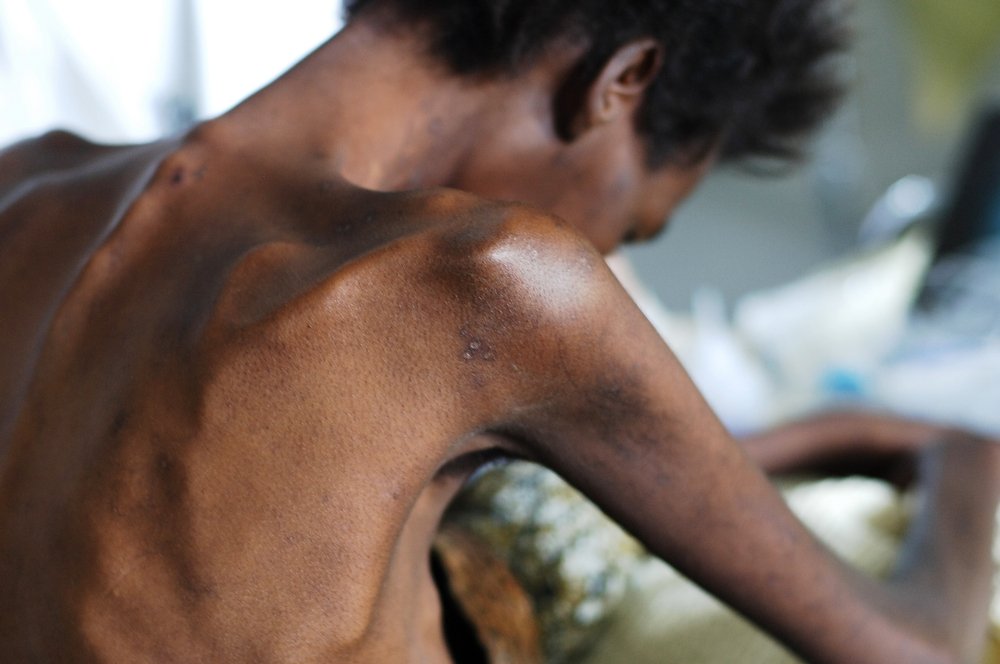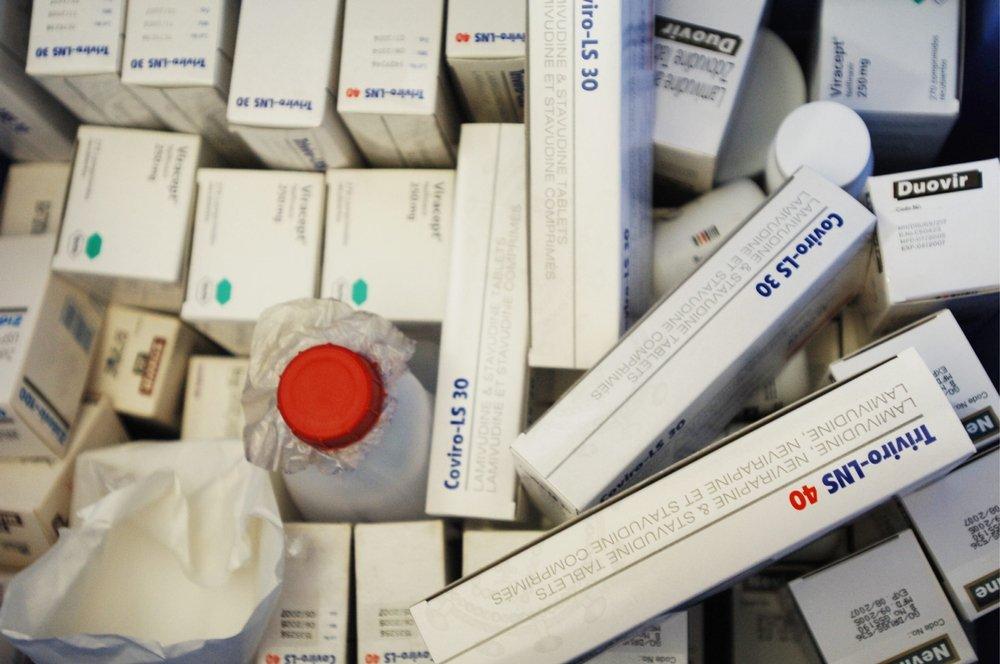
28-year-old Prisca Mbewe is an Aids patient who started ARVs a year ago.
Photo by:Julie Remy
Major donor countries have chosen to undercut the main international funding mechanism to save the lives of millions of people at risk of dying from AIDS, TB, and malaria, said the international medical humanitarian organisation MSF today.
The decision of major donor countries to massively underfund the Global Fund to fight AIDS, TB and Malaria, made at the Fund’s replenishment conference in New York today, will cost lives and severely weaken the ability of countries to implement programs that would reverse the tide of three of the largest infectious killers worldwide.
Dr. Jennifer Cohn, MSF HIV/AIDS Policy Advisor said: “Today marks a sad turning point in the fight against AIDS, TB, and malaria: world leaders have officially underfinanced the Global Fund. This decision will result in the death of millions of people from otherwise treatable diseases. Ambitious country programs, which could mean the difference between life and death, may no longer be feasible. A crisis plan and additional contributions are now urgently needed in order to maintain current grants and expand and improve promising treatment and prevention programs.”
Malawi is one example of what is at stake. The Malawian government recently submitted a Global Fund application for a program that would dramatically reduce the transmission of HIV from pregnant women to their children. The program, which could bring the rate of mother-to-child infections down from the current rate of 35 percent to as low as two percent, may no longer be possible. Similarly, efforts in Kenya and South Africa to provide treatment to all who require it will be made nearly impossible without a well-funded Global Fund.
The Global Fund estimates that if its target of $20 billion over three years were achieved, 7.5 million people would receive antiretroviral therapy, up from 2.5 million at the end of 2009. In its estimates, the Global Fund did not take into account the additional cost of international plans to expand diagnosis and treatment of drug resistant tuberculosis, or the cost of implementing new WHO treatment guidelines which call for improved first-line HIV medicines and starting patients on treatment earlier.
The Global Fund replenishment conference pledges reached $11.7 billion, far short of the $20 billion needed to expand programs and even short of the $13 billion needed just to keep existing programs running.
This year, the U.S. participated in the Global Fund replenishment for the first time. It has pledged $4 billion over three years – a disappointing amount given that the US generally contributes one-third of the Fund’s finances. The US has already flatlined funding for the bilateral President’s Emergency Plan for AIDS Relief (PEPFAR). Countries such as Italy and Sweden have not made contributions to the Global Fund. Countries including France, have increased their contributions, albeit modestly. Germany funding levels remained flat.
“Today’s failure by global leaders is particularly shameful because it comes just weeks after the Millennium Development Goals Summit, when they reaffirmed their commitments to global health,” said Dr. Cohn.
Find out more about MSF's work in Malawi
